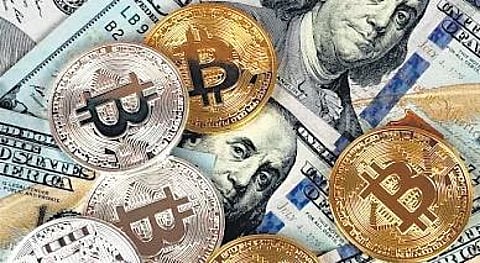

BENGALURU: In November 2021, Bitcoin, the largest cryptocurrency in terms of market capitalisation, touched its peak over $67,000, and there were rumours that it might touch $1,00,000.
But soon after that, the industry started facing major turbulences - with creeping inflation, Fed hiking interest rates, Russia-Ukraine war, Luna collapse (crypto token crash), many crypto companies pausing withdrawals, global markets selloff - the most popular cryptocurrency tumbled to an 18-month low below $22,000 in June 2022.
Apart from these global factors, the Indian crypto industry also started seeing layoffs, crypto winter, and the new TDS rule bringing down volumes on many crypto exchanges. Since January this year, leading crypto exchanges in India are seeing at least 70% dip in trading volumes. Many small exchanges are bearing the brunt and investors are also facing huge losses. When crypto lending platforms Celsius Network and Vauld announced halting customer withdrawals recently, citing various challenges, many customers who invested big sums in crypto, started questioning massive grey areas in the industry.
When asked about the present state of the crypto industry amid market volatility, Khaleelulla Baig, co-founder and CEO of Koinbasket, says, “We are definitely seeing capitulation, which is largely due to the lack of a regulatory framework. Almost all troubled crypto exchanges share a common flaw: greed for more money leads them to leverage and collateralise retail investor assets without consent.”
Though Vauld said it is finding the best solution for its customers and is in talks with another crypto lender Nexo for acquisition, the majority of its users are first-time investors, and they are concerned about their investments.
Baig says investors should transact only with regulated exchanges that do not collateralise or leverage pooled assets. However, transacting with unregulated exchanges is always a risk. Some of the exchanges are facing liquidity problems temporarily, as they lent out money, and the person who took crypto money has defaulted in repayment of the loan to the exchange. “This has made some of the exchanges to stop or pause operations,” says Sathvik Vishwanath, Co-founder & CEO, of Unocoin.
When asked about investors’ money in such cases, Mohammed Roshan, co-founder of GoSats says if an exchange decides to shut down, investors could lose a part or the full amount they have invested.
“Centralised crypto exchanges do have control over investors’ funds and crypto-assets. This means in case of a bankruptcy, these assets could be sold to cover debts to creditors,” he says.
Crypto trading volumes slump in India
According to exchanges, there are 2 crore crypto users in India. Also, with new tax laws- 30% tax and 1% TDS- crypto trading volumes are coming down. In the case of institutional traders, they need to pay 1% TDS for every transaction they make. For example, if they make 300 transactions, they need to pay TDS accordingly.
According to an expert, who did not want to be named, a majority of institutional investors have left India and that is the reason why volumes have collapsed now. Also, it is said that banks are refusing to work with crypto exchanges.
Crypto exchange WazirX and Zebpay launched a Trader Sentiment Survey, which says that 83% of traders believed that the recent tax implementation deterred their trading frequency, and 24% are contemplating shifting their trading activities to international exchanges owing to high taxation.
Rajagopal Menon, Vice President, WazirX says if crypto volumes fall, tax collection will also fall. From 1% TDS, the exchange is requesting the government to consider 0.1% as this will also help them in tracking transactions.
Also, he wants investors to be cautious while investing in international exchanges. “Some investors invest thinking they can avoid taxes by transacting in international exchanges,” he says.
“International exchanges are much more complicated than Indian exchanges given the jurisdictional issues or the border issues that already exist,” says Vishwanath of Unocoin.
Centralised exchanges are not guaranteed to be safe, but growing governmental regulation and oversight is attempting to separate the good and bad crypto players and put in place a structure that reassures businesses and customers that want to operate in the space, says Pavel Matveev, CEO and Co-Founder of Wirex.
Experts say considering the market condition and recession, investors should be cautious before investing all their hard-earned money in cryptocurrencies. Here is a word of caution for new investors: Experts say investors must deal with regulated exchanges to protect their assets. Invest in good projects that have stood the test of time in the past, and they should not invest more than 10% of their investments in crypto.
Things to be noted